Intervention Programs

Be a Mom Coping with Depression
Be a Mom Coping with Depression
Be a Mom Coping with Depression: A blended a blended cognitive–behavioral intervention for the treatment of postpartum depression
The intervention program integrates 7 face-to-face sessions that are weekly alternated with 6 online sessions through a web-based program, delivered over a period of 13 weeks to adult Portuguese women during the postpartum period with a confirmed diagnosis of PPD. The intervention is based on Cognitive-Behavioral Therapy principles and its third-wave approaches (e.g., self-compassion, acceptance and commitment therapy) and includes therapeutic strategies such as psychoeducation, cognitive strategies for dealing with negative thoughts, behavioral activation and relapse prevention.
Mariana Branquinho
ACORDA
Wake Up For Your Life - Psychotherapeutic Intervention Program for Depression in Teens
Program consisting of 12 weekly sessions, applied to depressed adolescents aged between the 14 and 18 years old. Based on the third generation psychotherapeutic approaches, the program integrates components of Acceptance and Commitment Therapy and Compassion Focused Therapy. Its main objective is to develop psychological flexibility and self-compassion, since this are psychological processes that are significantly associated with depression and that appear in the literature as important mediators and moderators of therapeutic results.
Andreia Azevedo
Alinha com a Vida – Programa de Promoção de Competências Emocionais e Sociais
The Program aims to promote emotional intelligence of adolescents.
Célia Barreto Carvalho

BeAMom
Be a Mom: A web-based intervention to prevent postpartum depression and promote emotional wellbeing in the postpartum period
BeAMom is a web-based psychological intervention designed to promote maternal mental health (by preventing postpartum depression and promoting wellbeing) in the postpartum period. BeAMom is a self-guided short-term intervention, developed upon the third-generation CBT-approaches (self-compassion and acceptance and commitment therapies) applied to the specificities of the perinatal context. It has a modular set-up that is updated weekly, with each of the 5 modules addressing 1 or 2 specific thematic contents (e.g., emotions, cognitions, social support). In each module, participants will be provided with psychoeducational content (text format, audio, video and animations) and therapeutic strategies, with interactive and feedback tools to support learning. The concept and content of the BeAMom was developed by the research team and the technical development was conducted by our technology company partner, Redlight Software.
Ana Fonseca
BeCA
Be Compassionately Aware – A compassion and mindfulness-based intervention for the promotion of mental and physical well-being in the general population
The BeCA is an 8-week compassion and mindfulness-based group intervention, supported by digital online resources, that aims to develop adaptive emotion regulation abilities, specifically (self-)compassion and mindfulness, and to promote mental well-being and psychophysiological, neuroendocrine and inflammatory stress responses, in the general population.
Marcela Matos
BeCAM
Be Compassionately Aware for Motherhood – A compassion and mindfulness based intervention for the promotion of perinatal and postpartum health and wellbeing
BeCAM is a 8-week group compassion and mindfulness-based intervention, supported by digital online resources, that aims to promote women’s perinatal wellbeing, emotion regulation, experience of motherhood and childbirth self-efficacy, and reduce psychopathology symptoms. BeCAM also aims to improve the mother-infant bond, childbirth outcomes, and newborn health indicators.
Marcela Matos
BeCAW
Be Compassionately Aware at Work – A compassion and mindfulness-based intervention for the promotion of mental well-being of corporative staff
BeCAW is an 8-week compassion and mindfulness-based group intervention, supported by digital online resources, that aims to develop adaptive emotion regulation abilities, specifically (self-)compassion and mindfulness, and to promote mental well-being, job-related well-being, work engagement and motivation and interpersonal relationships, in corporative staff and leaders.
Marcela Matos
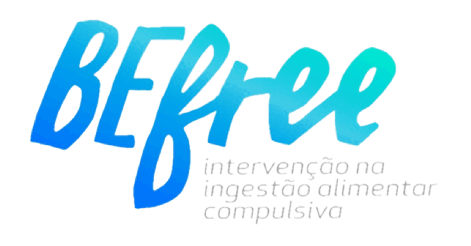
BEfree
BEfree: Group Intervention Programme for Binge Eating Disorder
BEfree is a psychological program for women with binge eating and obesity. It integrates psychoeducation, mindfulness, compassion and promotion of self-care actions in a complementary manner throughout its 12 sessions, each with duration of 2h30. BEfree is a standardized intervention carried out in a group format, and it is manualized in order for trained health-care professionals to guide group sessions.
José Pinto-Gouveia
BT-SAD-A
Behavioral therapy for social anxiety disorder in adolescence
Intervention program based on the principles of the behavioral theory as applied to social anxiety disorder in adolescence and designed to be applied in school context with students attending the 7ththrough the 12thgrade. It includes six one hour weekly sessions in which the following techniques are applied: behavioral gradual exposure, muscular relaxation and breathing, and counter-conditioning of anxious social events.
Paula Vagos

CARE
Compassionate Attention and Regulation of Eating Behaviour
The CARE is a mindfulness and compassion-based brief (4-week) self-help intervention designed for women from the general population with binge eating and BED.
Cristiana Duarte
CFT for young offenders
This is a structured 20-session handbook of Compassion Focused Therapy for young offenders, including youth with psychopathic features. It adapts CFT to this specific population and it was designed to attend young offenders’ mental health intervention needs, including relational problems and emotion regulation impairment. It can be delivered within forensic settings when delivering individual psychotherapeutic treatments to these youth.
Daniel Rijo
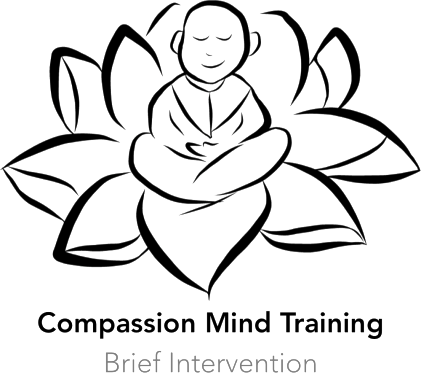
CMT
Compassion Mind Training – Brief Intervention
The Brief Compassion Mind Training intervention is a low intensity (2-week) program, supported by digital online resources, that comprises a psychoeducational component and a set of core CMT practices: soothing rhythm breathing; friendly facial expressions and voice tones; mindfulness; compassionate imagery and focusing.
Marcela Matos
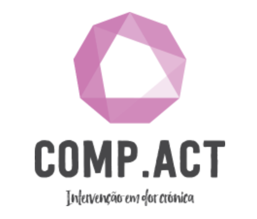
COMP.ACT
COMP.ACT: ACT and Compassion Program for Chronic Pain
One of the main objectives is the development, application and evaluation of the effectiveness of COMP.ACT, a group manualized intervention program based on acceptance, mindfulness and self-compassion for Chronic Pain.
Sérgio Carvalho

COMPASS
Compassionate Approach to Schizophrenia and Schizoaffective disorder
COMPASS is a compassion-based group intervention for early psychosis (diagnosis of schizophrenia, schizoaffective or schizophreniform disorders in the critical period without moderate-severe cognitive impairment or severe psychotic symptomatology). Its development was based on the theoretical model of Compassion-focused Therapy, research on self-compassion, adaptations of mindfulness for psychosis and studies on loving-kindness meditation. COMPASS comprises 12 two-hour group sessions and the groups evolve through three phases: Group as a safe place, Activating the soothing system and developing compassionate relationships and Recovery.
Maria João Martins
HEPPI
Homebound Elderly People Psychotherapeutic Intervention
Program consisting of 10 weekly sessions, applied to homebound older adults with Mild Cognitive Impairment (MCI) and depressive and anxious symptomatology (aged ≥ 65). Focused on psychoeducation, cognitive training (memory and attention control) and symptomatology/emotional difficulties presented by the subjects, sessions aim to improve cognitive function (mnesic abilities and attention control); promote the development and utilization of cognitive strategies (i.e. memory) and stress management strategies (i.e. relaxation); reduce depressive and/or anxiety symptoms; and contribute to the improvement of the Quality Of Life, the subjective perception of memory and subjects' health.
Andreia Jesus
Compassionate Schools
Compassionate Schools Programme: A compassion-based intervention to promote teachers and children wellbeing
Compassionate Schools is a 6-week compassion-based group intervention, designed to improve hear-rate variability, to promote compassion, empathy, mindfulness, engagement, wellbeing and mental health indicators, and to reduce fears of compassion, self and other criticism, negative affect, demotivation and burnout in teachers.
Marcela Matos
CT-SAD-A
Cognitive therapy for social anxiety disorder in adolescence
Intervention program based in the principles of the cognitive therapy applied to social anxiety disorder in adolescence and designed to be applied in school context with students attending the 7ththrough the 12thgrade. It includes six one hour weekly sessions in which cognitive restructuring is applied to the before, during and after moments of confronting with a fear social event.
Paula Vagos
GPS
Growing Pro-Social – A group based prevention and rehabilitation program for individuals with anti-social behavior
GPS’s theoretical framework is based on a cognitive–interpersonal perspective which conceptualizes aggressive behavioral patterns as a result of a distorted view of the self and the others. It aims to achieve behavioral change through the promotion of change in cognitive correlates of antisocial behavior (core schemas, cognitive distortions and cognitive products). The ultimate goal is to reach change in particular dysfunctional core beliefs underlying the social information processing of antisocial individuals. This is accomplished through a gradual strategy of change, requiring GPS to be delivered in a predefined sequence of five modules: Human Communication, Interpersonal Relationships, Cognitive Distortions, Function and Meaning of Emotions, and Dysfunctional Core Beliefs. It was designed to be applied with young and adult offenders.
Daniel Rijo
Hands
Prevention of Elder Abuse
The project “Hands" aims to contribute to the awareness and information of the community on the issue of abuse and abuse against the elderly use as a resource for dramatizing scenes of elder abuse followed by discussion/ information to dramatized scenes. It is important not only to clarify and sensitize potential "victims" but also current or future caregivers, family members and all professionals who interact and support the elderly. Thus, this intervention program intends to cover a large number of people, taking advantage from the time that people spend in the waiting rooms of the Healthcare Centers. Its main objectives are: formal and informal care, adaptation to different challenges and living conditions, promotion of the meaning of life and hope and facilitating personal development.
Margarida P. de Lima
HIT
Home Intervention Therapy
The program HIT-Home Counseling Intervention Therapy consists of an individual approach to provide psychological support, aimed at elderly people, to their personal development. The program’s main objective is the reduction of ill-feeling and its prevention, intervening in the following areas: relationship with formal and informal caregivers, adaptation to the different challenges and living conditions, promotion of the sense of life and of hope and facilitating personal development.
Margarida P. de Lima

Incredible Years – P
Incredible Years Basic for Parents (Webster-Stratton, 2008)
This program mainly aims to promote mental health in preschoolers (between 3-6 years-old) by training parents to use positive parenting strategies, including playing with children, praising and rewarding, setting limits effectively, handling misbehavior in respectful ways, and strengthening parent-child relationships. The program is implemented in group weekly sessions involving up to 12 parents and led by two facilitators with certified training. A strong emphasis is put on a collaborative approach, including active learning methods, such as role-play, video modeling, homework assignments and group discussion directed to the identification of social learning principles.
Maria João Rama Seabra Santos, Maria Filomena Gaspar

Incredible Years – TCM
Incredible Years Teacher Classroom Management (Webster-Stratton, 2003)
This program is a classroom-based intervention designed to promote 3-8-year-old children’s socio-emotional skills and self-regulation and to reduce conduct problems by strengthening teacher strategies of classroom management and home-school communication. The program is implemented in monthly workshops and focuses on contents such as: a) promoting positive relationships with children and family and the pro-active teacher; b) the importance of positive attention, encouragement and praise; c) using incentives to motivate children; d) reduction of inappropriate behaviors; e) negative consequences; f) promoting social skills and problem-solving. The workshops are led by facilitators with a certified training, using a collaborative approach as well as active and experiential methods, like role-play and group discussion triggered by vignettes of teacher-children interactions.
Maria Filomena Gaspar, Maria João Rama Seabra Santos

Kg-Free
Kg-Free: an acceptance, mindfulness & compassion-based group intervention for women struggling with their weight
Kg-Free is a manualized acceptance, mindfulness & compassionate-based group intervention for women struggling with their weight. Kg-free aims to reduce weight self-stigma and unhealthy eating behaviors and promote quality-of-life by targeting weight-related experiential avoidance and self-criticism patterns.
Lara Palmeira

#KindGirlsInAction
#KindGirlsInACTion: Um programa para a promoção da saúde mental em adolescentes portuguesas
O #KindGirls é um programa estruturado de aplicação em grupo e em contexto escolar, que visa a promoção de processos de regulação emocional adaptativos (tais como a compaixão, aceitação e afiliação), para a promoção da qualidade de vida e proteção em relação à psicopatologia (geral e alimentar) em adolescentes do sexo feminino.
Cláudia Ferreira/Joana Marta-Simões/Ana Laura Mendes
MBPI
Mindfulness Based Program for Infertility
The MBPI is based on the Mindfulness-Based Program for Stress Reduction, the Mind/Body Program for Infertility, and basic principles of acceptance and commitment therapy (ACT). It is a structured group intervention targeting infertile women that aims to cultivate mindfulness and acceptance, helping them to move in a chosen and valued life direction.
Ana Galhardo
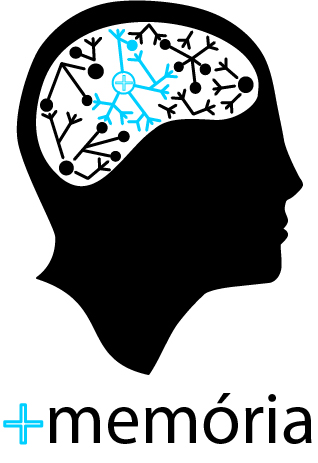
+Memória
Mais Memória
+Memória” is an intervention program focused on the combination of transcranial direct current stimulation (tDCS) with cognitive training to investigate neuroplasticity in older adults and further explore the involvement of the cerebellar cortex in memory processes. TDCS is a neuromodulation technique that allows the stimulation of superficial brain regions in a non-invasive way. On the other hand, cognitive training is based on exercises focused on memory training, specifically verbal episodic memory. The intervention comprises 12 individual sessions (consecutive days with the exception of weekends) of 1h30 each.
Mário R. Simões
MEMO+
Memory training program for mild Alzheimer Disease
MEMO+ is a tailored memory training program that was build and tested with patients with mild Alzheimer Disease. This program comprises a set of motivation, attention and memory exercises with a particular focus in the practice of internal memory techniques (spaced retrieval, errorless learning, vanishing cues). The development of these exercises was based in the recent research of the most effective techniques to delay the progression of memory deterioration typical in AD.
Ana R. Silva
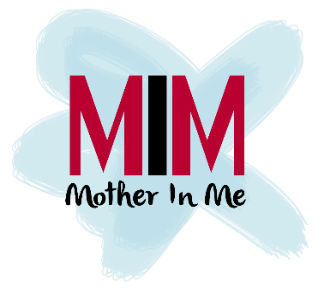
MIM
MIM – Mother in Me
This program aims to prevent and early intervene in perinatal depression, by giving strategies to pregnant women to deal better with stress, anxiety and depressive symptoms, throw psychoeducational and cognitive-behavioral exercises, together with mindfulness and self-compassion practice.
Ana Telma Pereira
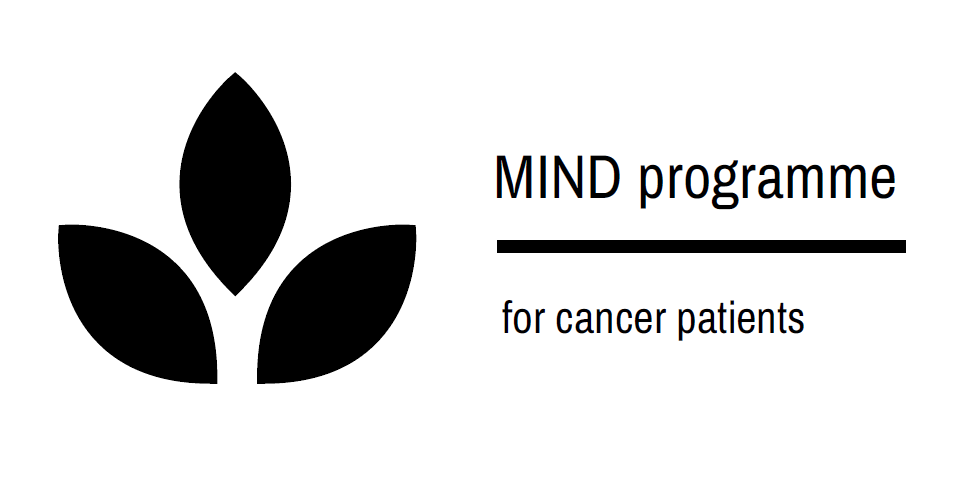
MIND
MIND programme for cancer patients
The MIND (as in “mentality” and “care”) programme is a manualized psychotherapeutic intervention that overall aims to improve psychological health in cancer patients. This 8-week group programme integrates mindfulness practice, acceptance and commitment therapy (ACT), and compassion-focused therapy (CFT).
Inês Trindade

NoHoW
NoHoW: Evidence-based ICT tools for weight loss maintenance
The NoHoW toolkit (TK) is a mobile-enabled website delivered as a portfolio of embedded tracking technologies, mini-apps, and web resources designed to promote weight loss maintenance in overweight individuals. The active intervention lasts six months and remains available to the user for a further 12 months to re-visit. The TK presents a self-weighing component and evidence and theory-driven thematic modules targeting behaviour regulation, motivation and emotion regulation mechanisms.
Berit Heitman, Marcela Matos, Cláudia Ferreira, José Pinto-Gouveia, Cristiana Duarte, Lara Palmeira, Sérgio Carvalho
SAFE Schools – Student version
SAFE Schools’ theoretical framework is based on the SIP model and additionally encompasses other components such as emotional activation and regulation. The intervention was designed to be delivered to whole classes of 7 th to 9 th graders, in a face-to-face format and within the class’s allocated timetable. Its goals are to mitigate the practice of aggressive behaviour by adolescent students within school contexts, to enhance prosocial and assertive behaviours and to promote more positive relational climate in the classroom. The program includes 14 weekly sessions of approximately 60 minutes each and is organized across five consecutive modules: Cognitive restructuring, Emotional management, Behavioural manifestations of aggression, Activation of alternative behaviours, Revision of gains and relapse prevention.
Paula Vagos
SAFE Schools – Teacher version
SAFE Schools’ theoretical framework is based on the SIP model and additionally encompasses other components such as emotional activation and regulation. The intervention was designed to be delivered in a face-to-face and group format to teachers of 7 th to 9 th graders, within the school context. Its goals are to help teachers better understand and manage their students’ practice of aggressive behaviour and, alternatively, model and reinforce prosocial and assertive behaviours, contributing to a more positive relational climate in the classroom. The program is organized across four modules: Cognitive and emotional motivations for aggression, Managing behaviours in the classroom, and Promotion and management of alternative behaviours to aggression. These modules are covered over a span of 25 hours scheduled during a 14-week period according to the teachers’ availability.
Paula Vagos
PPDA
Program for the Prevention of Depression in Adolescents
The Program for the Prevention of Depression in Adolescents (PPDA) was adapted for the Portuguese population from the preventive program for adolescents “Mind and Health” developed by Arnarson and Craighead (2009, 2011). It’s a selective prevention program, composed by 14 sessions in a group format. The program is based on the cognitive behavioral model of depression and is a structured intervention designed to increase the resilience of adolescents, reducing the major cognitive-behavioural risk factors: disturbing thoughts, emotional dysregulation and behavioural problems. The PPDA includes a manual/homework book for the adolescent participants, a manual for group leaders, comprising various materials that are presented in an attractive way.
Ana Paula Soares de Matos
3PDA
Parental Program for the Prevention of Depression in Adolescents
The Parental Program for the Prevention of Depression in Adolescents (3PDA) was developed to improve the efficacy of the Program for the Prevention of Depression in Adolescents (PPDA). The 3PDA is an innovative intervention, includes contents such as emotional validation and compassion towards their children and increases the parents’ comprehensibility about risk and protective factors for adolescent’s depression and the quality of the relationship between parents and adolescents. It is based on the cognitive behavioral model and its 3rdWave Generation developments and includes psychoeducation and parental coaching. It is expected that more resilient and skilled parents can help vulnerable children to learn how to cope with everyday life and adversity. The 3PDA consists of 10 group sessions (and an additional session for celebration and program ending) for parents.
Maria do Rosário Pinheiro
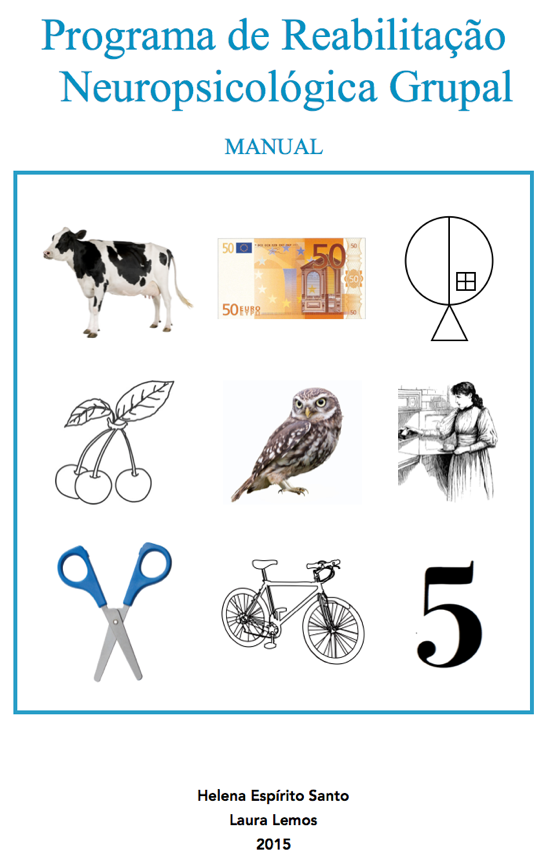
PRNG
Group Neuropsychological Rehabilitation Program
The PRNG includes exercises of cognitive stimulation (linguistic, gnostic, mnesic, praxic, executive, and attentional) organized into 10 sessions (10 sessions x 5 exercises). It includes reminiscent-like warm-up exercises and a reality-oriented memory closing-session exercise. It is targeted to cognitive impairments resulting from various brain diseases, especially in old age.
Helena Espírito Santo
Projet’Ar-te
Projet’Ar-te
Projet’Ar-te is a psychosocial and socio-educational intervention for young people aged between 12 and 18 years old living in Residential Care that aims to promote and monitor the process of youths’ autonomy during and after the residential care.
Maria do Rosário Pinheiro
Vamos Sentir com o Necas – Programa de Promoção da Inteligência Emocional para o 1.º Ciclo do Ensino Básico
The Program aims to promote emotional intelligence of children in elementary school.
Célia Barreto Carvalho

Mindkindful
Mindkindful
O MindKindful é um programa para cuidar da mente que contempla práticas de mindfulness e compaixão ao longo de oito semanas. O mindfulness e compaixão estão intimamente ligados e toda a prática do mindfulness deve ser realizada com uma atitude de gentileza, bondade e compaixão pelo próprio, pelos outros e pela natureza. Fazemos aqui a sua apresentação separada apenas para facilitar a
descrição da organização dos conteúdos do curso.
http://www.apmindfulness.com/pdf/programa_mindkindful.pdf
José Pinto Gouveia
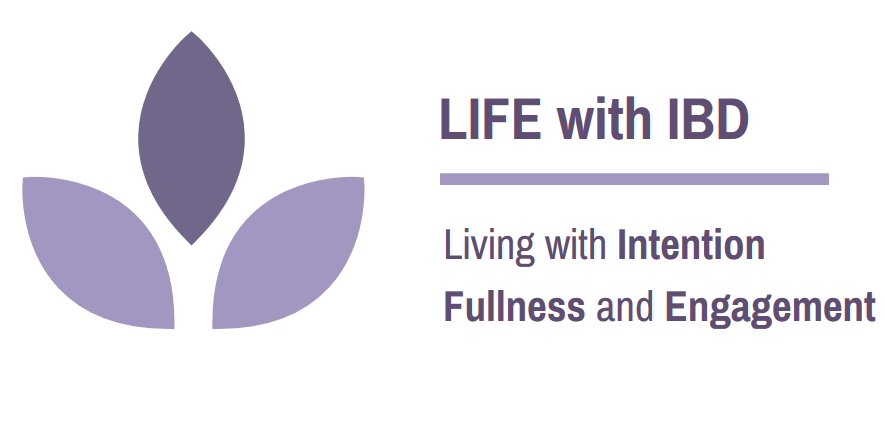
LIFE with IBD
Living with Intention Fullness and Engagement with Inflammatory Bowel Disease
Acceptance, mindfulness, and compassion-based group intervention for people with inflammatory bowel disease aiming to increase quality of life and mental health.
Cláudia Ferreira, Inês Trindade

PLAYwithHEART
PLAYwithHEART: Desenvolvimento e estudo de eficácia de um Programa para a promoção de competências de aceitação e cooperação para atletas adolescentes. //PLAYwithHEART: Development and effectiveness study of a Program for the promotion of acceptance and cooperation skills for adolescent athletes
O PLAYwithHEART é um programa destinado a atletas adolescentes que tem como principal objetivo a melhoria do bem-estar dos atletas e a diminuição dos seus níveis de ansiedade desportiva. Embora não seja um objetivo primário deste programa, é possível que potencie melhores resultados na motivação, prática de treino e na performance dos atletas, uma vez que serão promovidas competências de mindfulness, aceitação, compaixão.
PLAYwithHEART is a program for promoting acceptance and cooperation skills in adolescent athletes. This group application program aims to decrease levels of sport anxiety, and increase the quality of life of young athletes, by promoting skills inherent to an affiliation mentality (mindfulness, acceptance and compassion), as an alternative to a social ranking mentality (based on maladaptive processes, such as shame, self-criticism and insecure striving), to deal with the challenges and demands of the sport context.
Sara Oliveira
MyJourney
My Journey - 10 steps to build acceptance of your unfulfilled wish for children
MyJourney is a free online interactive self-help program based on Cognitive-Behavioural Therapy that provides step-by-step support to promote psychological adaptation to an unfulfilled wish for children.
MyJourney was developed by Cardiff University Fertility Studies Group, in collaboration with the Portuguese Fertility Association and Fertility Network UK. Its development is informed by research and carried out with members of the public who have an unfulfilled wish for children.
Sofia Gameiro
O Eu e o Nós das Emoções – Academias Gulbenkian Conhecimento 2020
O projeto “O Eu e o Nós das Emoções” objetiva o aperfeiçoamento e avaliação de eficácia de um programa psicoeducativo emocional para crianças do 3º e 4º ano de escolaridade. Os objetivos específicos do projeto são: ensinar estratégias de autorregulação emocional focadas na tranquilização e compaixão, bem como encorajar comportamentos de coesão social e cooperação na relação com os outros
Ana Maria de Jesus Xavier
SMSyouths [SMSjovens]
Success, Mind and Health program for youths [Programa Sucesso, Mente e Saúde para adolescentes]
The SMSyouths program, which was originated from the Program for the Prevention of Depression in Adolescents (PPDA) consists of 10 weekly sessions, applied to students attending the 7th - 9th grade. The main aims of this intervention program is to promote mental health and prevent depression in adolescents.
In each session, skills based on cognitive-behavioral and Third Generation therapy are worked on and trained, which have proven to be effective in preventing and treating many mental health problems in adolescence. The program addresses topics such as problem-solving, compassion, communication with others, how to deal with irrational thoughts, goals, mindfulness, and how to improve the mood.
The face-to-face intervention of SMSyouth will be accompanied by an e-health platform (SMS eSaúde web).
The SMSyouths program has been previously tested at international level and in Portuguese 3rd cycle schools in the center of Portugal.
Ana Paula Matos
SMSparents [SMSeducadores]
Success, Mind and Health for parents [Sucesso, Mente e Saúde para educadores]
The SMSparents program, which was originated from the Parental program (3PDA) was created and implemented exclusively in Portugal, by the SMS’ project team.
This program includes 5 weekly 90-minute post-work session sessions. It’s designed to promote communication skills, conflict resolution, emotional support, and improve the quality of the relationship with adolescents.
The face-to-face intervention of SMSparents will be accompanied by an e-health platform (SMS eSaúde web).
The SMSparents program has been previously tested at national level proving its effectiveness.
Ana Paula Matos

Self-care to care
"Self-care to care: Group program based on compassion and mindfulness for informal caregivers of individuals with mood disorders"
Program based on Mindfulness and Compassion approaches, which aims to support informal caregivers of individuals with mood disorders.
Joana Moura Cabral; Célia Barreto Carvalho; Paula Castilho and Carlos Pato
Projeto CR55+
O Conselhos Repórteres 55+ promove a participação ativa das pessoas mais velhas e isoladas na transformação comunitária local, no sentido da criação de melhores condições para um envelhecimento ativo.
Paulo Nossa (Margarida P. Lima)
Cognitive-Emotional Intervention Program for Homebound Older Adults with Mild Cognitive Impairment
Program consisting of 10 weekly sessions, applied to homebound older adults with Mild Cognitive Impairment (MCI) and depressive and anxious symptomatology (aged ≥ 65). Focused on psychoeducation, cognitive training (memory and attention control) and symptomatology/emotional difficulties presented by the subjects, sessions aim to improve cognitive function (mnesic abilities and attention control); promote the development and utilization of cognitive strategies (i.e. memory) and stress management strategies (i.e. relaxation); reduce depressive and/or anxiety symptoms; and contribute to the improvement of the Quality Of Life, the subjective perception of memory and subjects' health.
Andreia Jesus
Digi&Mind
Individual Stimulation Program in Digital Cognitive Stimulation Format for Elderly
The project proposes the promotion of independent life for the elderly with fragility through the improvement of cognition. The aim is to respond to health needs by promoting the improvement of the quality of life and offering services to the community.
Timóteo Areosa

Mindful Moment
Mindful Moment: Programa de parentalidade mindful e compassiva para mães de bebés
Mindful Moment is an online psychological intervention that aims to help mothers in the postpartum period to better cope and regulate their parenting stress and develop mindful parenting skills. It is a self-guided program with 6 modules that includes cognitive-behavioral, mindfulness and compassion-based techniques.
Daniela Ventura Fernandes; Helena Moreira; Maria Cristina Canavarro
UP-C
Unified Protocol for Transdiagnostic Treatment of Emotional Disorders in Children
The Unified Protocol for Transdiagnostic Treatment of Emotional Disorders in Children (UP-C) is a transdiagnostic and emotion-focused cognitive-behavioral group intervention for children (7-13 years) with emotions disorders (i.e., anxious and/or depressive). It aims to reduce the intensity and frequency of strong and aversive emotional experiences in children, by helping them learn how to confront those emotions and respond to them in more adaptive ways. It includes cognitive-behavioral and mindfulness techniques for parents and children.
Brígida Caiado; Helena Moreira; Maria Cristina Canavarro

Detetives das Emoções In-Out” [Emotion Detectives In-Out]
Protocolo Unificado para o tratamento transdiagnóstico das perturbações emocionais em crianças: Versão combinada
The blended Unified Protocol for Children (bUP-C) is a blended intervention for children (7-13 years) with emotions disorders (i.e., anxious and/or depressive) and their parents. It based on the Unified Protocol for Transdiagnostic Treatment of Emotional Disorders in Children and integrates face-to-face and online sessions for parents and children into one treatment protocol. It is a transdiagnostic and emotion-focused cognitive-behavioral therapy, designed to help children reduce the intensity and frequency of strong and aversive emotional experiences through cognitive-behavioral and mindfulness techniques.
Helena Moreira
PU-C Stepped-Care
Protocolo Unificado para Crianças Stepped-Care
O Protocolo Unificado para Crianças Stepped-Care é um programa de intervenção stepped-care (em duas etapas) para pais e crianças entre 7 e 13 anos com sintomatologia clinicamente significativa/diagnóstico principal de perturbação de ansiedade e/ou de humor. O protocolo de intervenção baseia-se no Protocolo Unificado para o Tratamento Transdiagnóstico das Perturbações Emocionais das Crianças (PU-C), uma abordagem transdiagnóstica que integra componentes da intervenção cognitivo-comportamental e técnicas de mindfulness e que visa ajudar as crianças a reduzir a intensidade e frequência de experiências emocionais fortes e aversivas, bem como ajudar os pais a reduzir a frequência de comportamentos que reforçam as dificuldades das crianças (e.g., criticismo, superproteção) e a desenvolver novos comportamentos mais funcionais.
Ana Carolina Góis; Helena Moreira; Maria Cristina Canavarro

Mind the Mom
Mind the Mom: An online intervention for perinatal mental health in times of pandemic
Mind the Mom is a brief psychological intervention, delivered through a mobile app, which aims to promote mental health of women who are pregnant through the pandemic of COVID-19. The preliminary studies of its efficacy are undergoing. Mind the Mom is a self-guided intervention, with a modular structure, with each of its five modules addressing a theme (psychoeducation about stress and incertitude caused by the pandemic and the importance of stress management and selfcare, emotion recognition and coping, automatic and negative cognitions and coping, mindfulness and self-compassion and communication). Pregnant participants are given information, exercises, and therapeutic strategies, by means of text, animations, video, and audio content. The content was developed by the research team; Hyp was the technology company responsible for the software development.
Anabela Araújo Pedrosa

CMT-Care Homes
Treino da Mente Compassiva para Cuidadores (Compassionate Mind Training for Caregivers)
The CMT-Care Homes is a 12-session structured and manualized program to be delivered in a group format to professional caregivers working in Residential Youth Care settings. Main goals are to cultivate a compassionate-self and foster a caregiving mentality in Residential Youth Care.
Laura Santos
SMS eSaúde
In the context of the SMS [Sucesso, Mente e Saúde] project, a web-based psychological intervention was developed to promote mental health and prevent depression in adolescence.
The users can learn about mental health and access the SMS programs: SMSyouths (for adolescents) and SMScaregivers (to caregivers of adolescents who are attending the SMSyouths program).
This platform provides mental health-related content based on CBT and third-generation approaches.
The SMS participants can access exclusive psychoeducational resources such as videos, audio recordings of mindfulness and compassion meditations, games, quizzes, comics, self-monitoring records, forums, infographics, and short message service chains with inspiring quotes/sentences.
The community has access to information about support lines and psychological care services, information about mental health, a forum, and two brief questionnaires where users can test their mental health and mental toughness and receive feedback about their results.
Ana Paula Soares de Matos
MyJourney
MyJourney: Ten steps to build acceptance of your unfulfilled wish for children
MyJourney was developed by Cardiff University Fertility Studies Group, in collaboration with the Portuguese Fertility Association (APFertilidade) and Fertility Network UK. MyJourney is a self-help interactive program based on Contextual Cognitive Behavioural Therapy. It provides step-by-step support to ease acceptance of an unfulfilled wish for children.
Sofia Gameiro
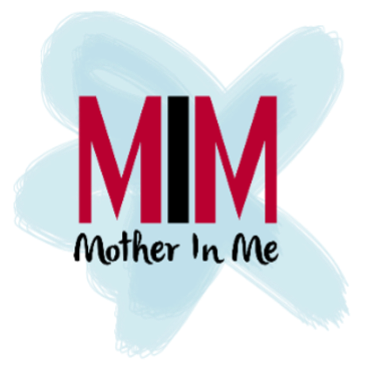
MIM
Mother in Me
MIM is a mindfulness and compassion-based group programme, developed to be delivered in-person with a duration of 8 weeks (with weekly sessions), developed for prevention and early intervention in woman’s perinatal depressive symptoms. It was designed to apply during pregnancy.
Ana Telma Pereira
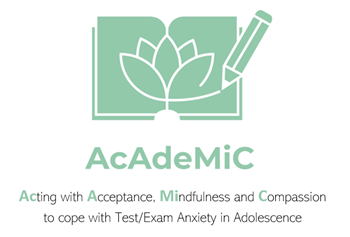
AcAdeMiC
AcAdeMiC – Acting with Acceptance, Mindfulness and Compassion to cope with Test/Exam Anxiety
The AcAdeMiC (Acting with Acceptance, Mindfulness and Compassion to cope with Test/Exam Anxiety in Adolescence) is a manualized online psychotherapeutic program for adolescent students that encompasses 12 90-minute individual weekly sessions, delivered by a trained therapist. The program aims to decrease test anxiety and increase general and school well-being, through the process of fostering competencies of self-compassion, acceptance and mindfulness.
Cláudia P. Pires
WIN
Work Intervention Network
Work Intervention Network--Innovative workshops supporting people facing work-based transitions and unemployment/ underemployment:
https://bc.edu/content/bc-web/schools/lynch-school/sites/win.html
Work Intervention Network evaluation study--Journal of Career Assessment (open access):
https://journals.sagepub.com/doi/10.1177/10690727231196143
David Blustein
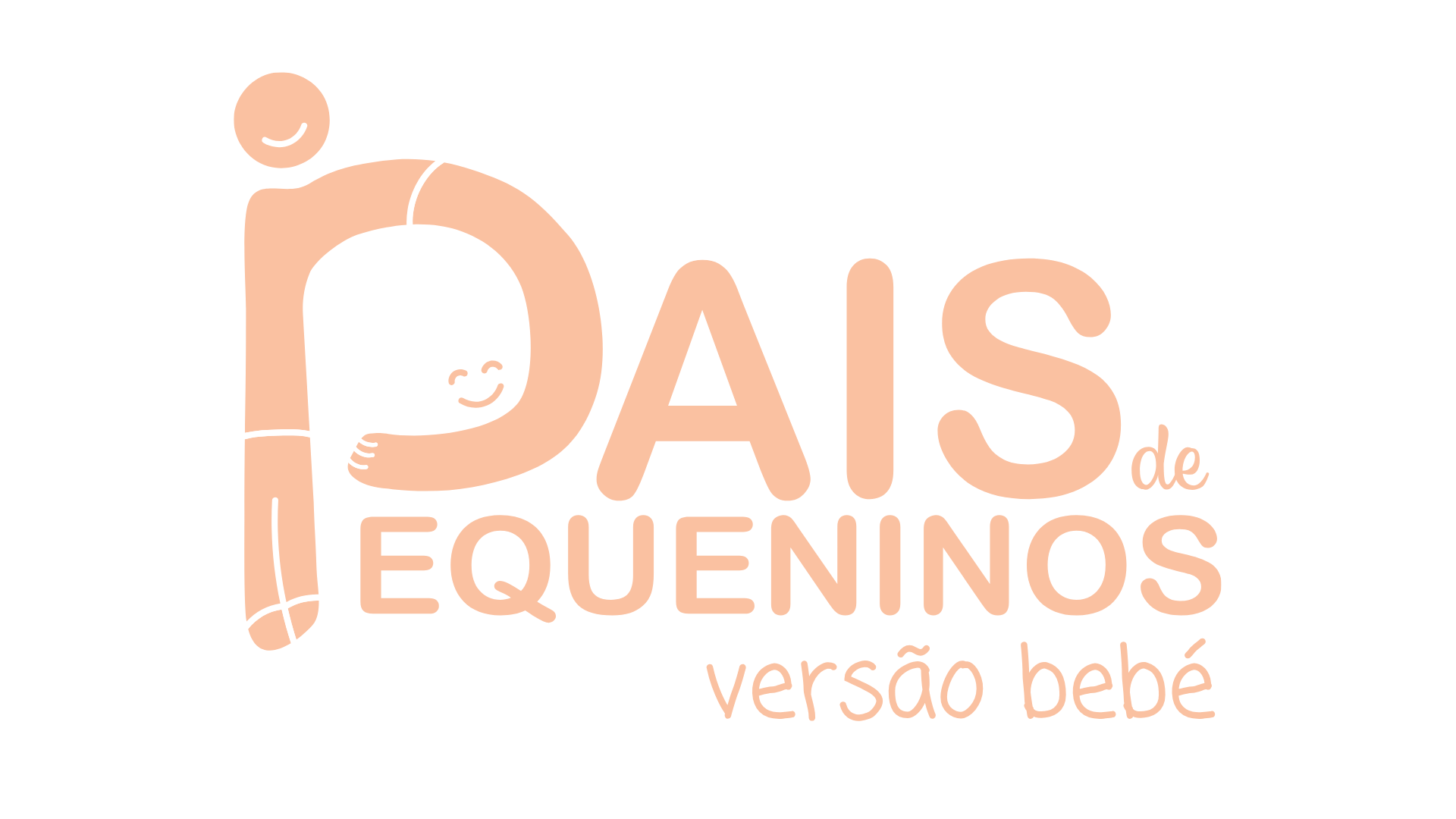
PdP
Pais de Pequeninos – Versão Bebé [Parents of Little Ones – Baby version]
The Parents of Little Ones – Baby version program is a preventive and early intervention program aimed at improving maternal mental health, reducing parenting stress and promoting mindful and compassionate parenting during the postpartum period. The program includes 8 sessions that integrate principles from cognitive-behavioral therapy, mindfulness, compassion-based approaches, and mindful parenting strategies.
Helena Moreira

PdP
Pais de Pequeninos – Versão Criança [Parents of Little Ones – Child version]
The Parents of Little Ones – Child program is designed to alleviate parenting stress and encourage mindful and compassionate parenting for parents in multi-challenged families with children aged 1 to 6 years. This program comprises 8 sessions that combine principles from cognitive-behavioral therapy, mindfulness, compassion-based approaches, and mindful parenting techniques.
Helena Moreira
No results
We didn’t find any result for what you searched. Try searching for something else.
